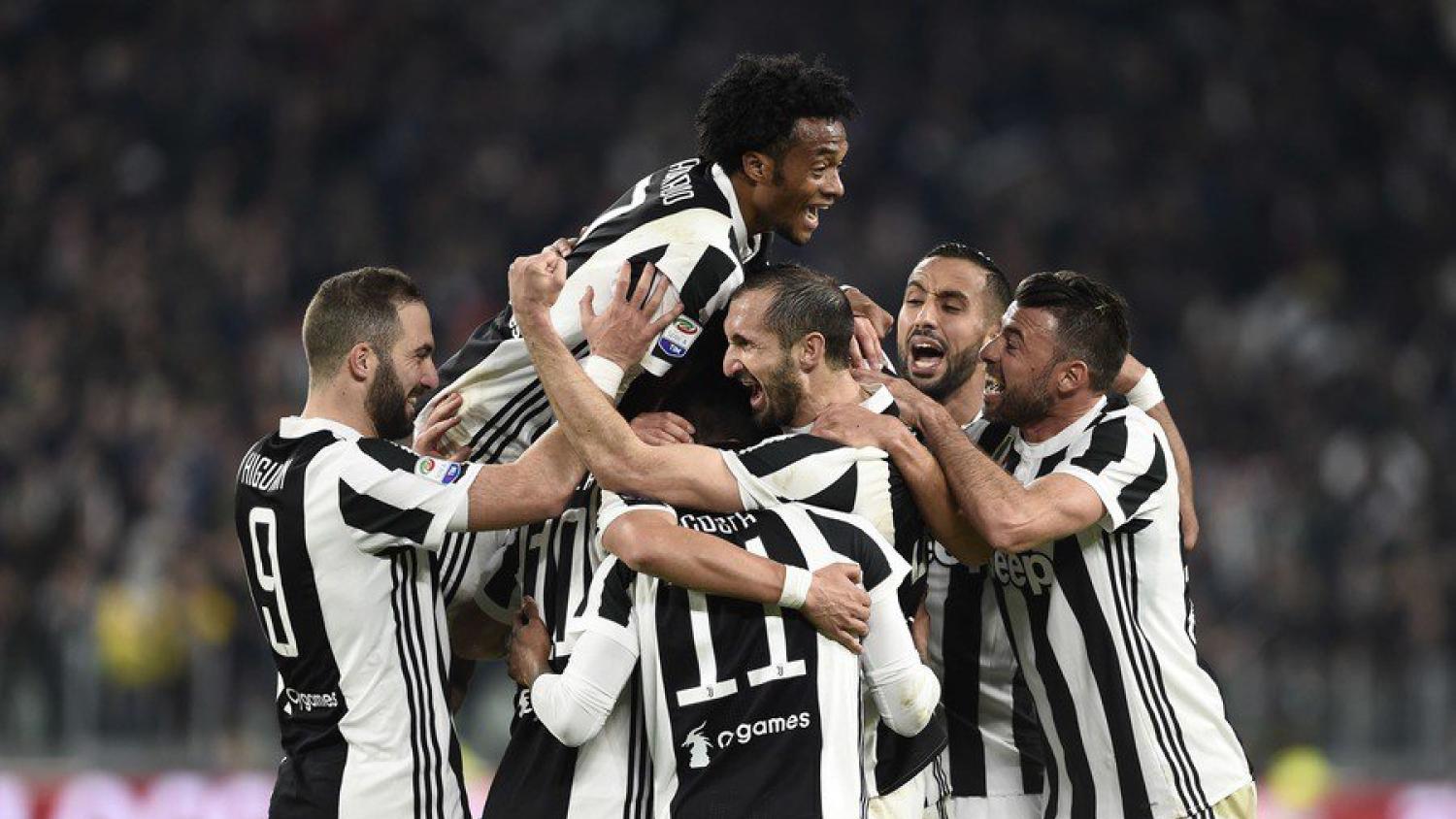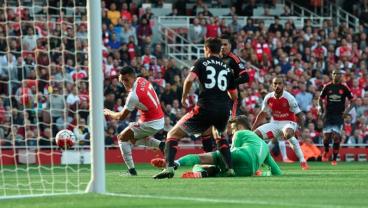This was meant to be a blockbuster weekend. There was so much going on in Serie A. The Rome derby. Inter versus Atalanta. Milan versus Napoli. All the fallout from the midweek European ties. The build up to next weekend’s potential title decider in Turin.
Instead, it all kind of fizzled out. All of the most interesting fixtures ended in goalless draws, extinguishing any chance of a title race and offering us no progress in the race for the Champions League. A damp squib of a weekend, all build up and no pay off.
But perhaps the most notable result was Juventus against Sampdoria, where the reigning champions rotated heavily and practically sealed their seventh straight Scudetto by thrashing their opponents in a professional, procedural fashion. The Juventus Napoli title race is – almost – officially off.
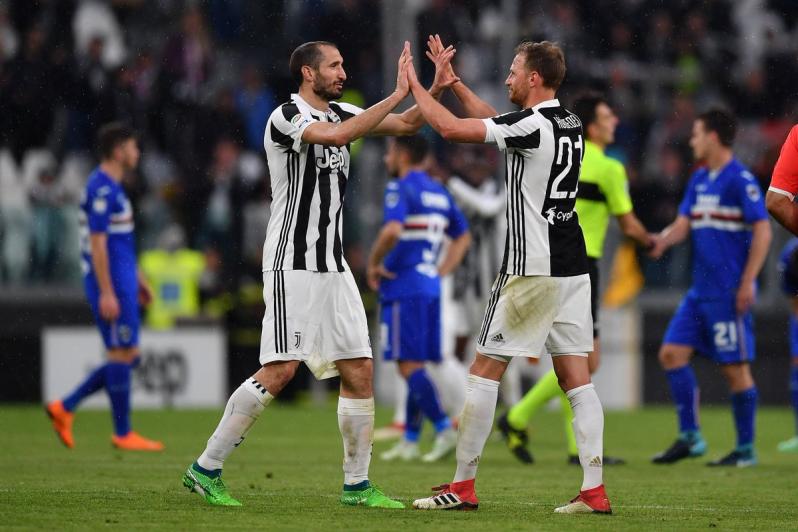
Juve players celebrate their clinical 3-0 win. Photo: @AmantedoFut | Twitter
As impressive as this run is, we’ve now got to ask the question: does Serie A have a Juventus problem?
There’s no way to avoid this: one team winning seven titles in a row is a problem.
Unless you’re a Juventus fan, there’s nothing joyful to be gleaned from Juventus’s period of sustained success. Even the German and French leagues, nominally dominated by one giant, have seen a greater variety of winners in the last decade than Italy.
Such dominance is boring. It’s routine, mundane and uninteresting.
It’s dull for those watching at home and it’s dull for those who go to the stadium every weekend.
An uncompetitive league is most certainly an issue.
However, it’s not Juventus’s fault that they’re better than everyone. Their success is the result of a multitude of factors: they have the best players, the best manager, the best club hierarchy, the best stadium, the best long-term planning and the best of pretty much everything you could think of.
This is not to blame Juventus. They are experts are maximizing their position of strength. Considering the lowly prospects ahead of them before the arrival of Antonio Conte, the turnaround in fortunes has been remarkable. Juventus were always going to return to the top of the league but few people expected them to be this dominant, this quickly. Their success is commendable.
Indeed, there is an argument that suggests Juventus’s success is a benefit to the league, that buying the best player from Roma or bringing worldwide attention to Sassuolo is the footballing equivalent of Ronald Reagan’s trickle-down economics.
Just as in the real world, this is a facile argument, typically used to justify the concentration of resources among the elite: Juventus’s routine dismantling of Sassuolo has no provable benefit for the smaller side. It won’t help them sell shirts in China or grow their club to any real degree.
In fact, Sassuolo’s best players, Simone Zaza and Domenico Berardi, were bought, used up and then sold on by Juventus. While Berardi is now back at the club, this financial flexing from Juventus had a destabilizing effect on Sassuolo while neither player came close to breaking into the Juve first team.
Buying the best players from other sides simply means that the other side now has fewer good players and is in less of a position to challenge Juventus. They might have cash, but they do not have the cache to attract replacements of a similar quality. Roma selling Miralem Pjanic and Napoli selling Gonzalo Higuaín effectively ended the 2016-17 season before it began.
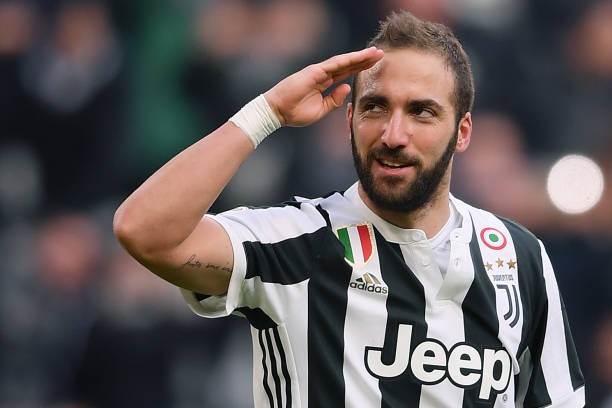
Higuain helped Juve to another title last year. Photo: @ForzaJuve2017 | Twitter
The time these sides spent rebuilding, Juventus spent winning another title. By the time Napoli or Roma are able to challenge again, there will be another player for Juventus to swoop in and purchase, effectively starting the cycle again.
There is also the argument that Juventus’s success does bring worldwide attention. Serie A, despite the lack of competition and its numerous flaws, does command an impressively high fee for broadcast rights. The brand recognition of Juventus is a massive contributing factor in this respect, part of which is due to their enduring success. It can then be argued that rights deals are higher simply because Juventus keep winning.
On a similar note, the way in which broadcast money is distributed among the teams is more egalitarian than in leagues such as La Liga, where the Spanish giants tend to take a far greater proportion of the deal when compared to the relative minnows (though they have changed their model in recent years).
Therefore, Juventus’s brand and continued success allows Serie A teams to earn more money and this money is shared around the other clubs. However, there are other teams with similar reputations and trophy cabinets. Milan and Inter, for instance, boast greater European success than Juve and can boast of their own international appeal. Without Juve, the broadcast deal would still be worth a great deal of money.
The disparity between the teams is evident in other areas, too. Though there’s plenty of reasons as to why Serie A attendance numbers have been dropping in recent years (struggling economy, poor quality stadiums), the lack of competition at the top end of the table certainly doesn’t help.
In turn, empty stadia mean a poorer product for broadcasters. In an age when television money is flooding the transfer market with increasing costs across the board, the importance of being able to sell a good product to a global audience is essential. Empty stadiums are not aesthetically pleasing. They don’t make for good TV.
Part of the Premier League’s appeal is the full stadiums and the atmosphere they create. It’s part of the product that is being sold to audiences around the world. Juventus’s dominance can, in some small way, affect this.
This is an issue compounded by the Italian traditions of sitting in the curva (behind either goals) rather than along the lateral sides of the pitch. Even if the supporters are packed in both ends, the stands look empty on the TV and, without a thrilling title race, there’s little motivation for supporters to pack into the more expensive seats.
It’s a problem which feeds into itself: Juventus’s dominance lowers interest in the league, which in turn lowers attendance numbers, which makes the games harder to sell, which in turn helps Juventus to earn a greater amount of money when compared to other teams – if a number of matches are broadcast simultaneously, the match involving Juve will garner the most viewers.
Juventus are also one of the only teams in Italy to own and operate their own stadium. The importance of this is hard to understate. Indeed, the club hierarchy, when building the Allianz Stadium (as it is now known) actually decreased the number of seats in comparison to their old home, the Stadio Olimpico. They struggled to fill that stadium, but every match in their new home is a sell-out. This creates a better atmosphere, which in turn creates a more sellable product and thus leads to Juve being on TV even more frequently. This, in turn, helps with commercial deals. It’s a self-propagating success machine.
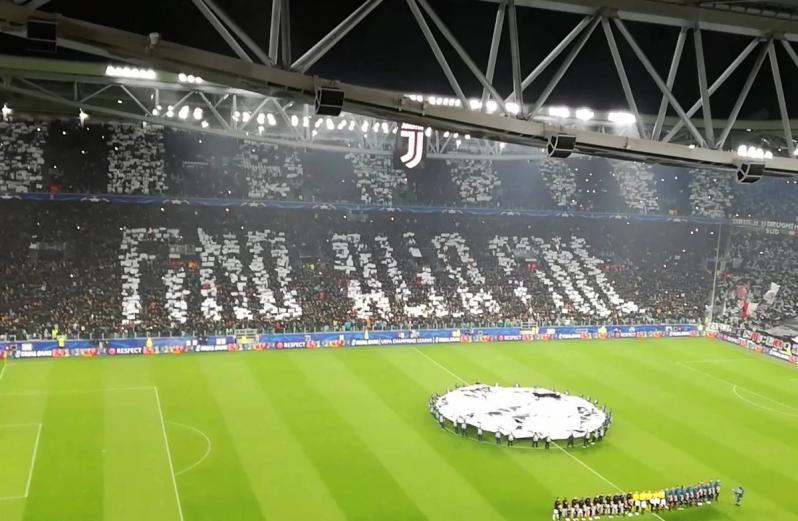
Allianz Stadium: the jewel of Italian football. Photo: @adp_gigi | Twitter
In comparison, just look at the clubs from Milan or Rome. Despite their intense rivalries, they share stadia with one another. What’s more, neither club fully owns the property. This limits what they can do, limiting their ability to maximize their match day revenue. That’s why so many teams are trying to build their own stadium. It’s why Udinese, one of the other teams who own and operate their own ground, have a more sustainable business model than, for example, Milan.
In this respect, it’s not Juve’s fault that other clubs have not had the forethought or the budget or the opportunity (or, in the case of Roma, the ability to undertake a huge construction project in one of the most historic cities in the world) to build their own grounds. But the issue is a good way of highlighting the ways in which Juventus’s success manifests both on and off the pitch. Simply put, they are streets ahead.
It is important to acknowledge the wealth gap which exists between Juventus and the other clubs, especially as it seems to be growing wider and wider.
When teams like Milan or Inter invest heavily (as they have done historically, it should be noted), they find themselves in a difficult position. These positions are not always the same. Inter found that their spending was curbed by both the war in Libya and its effect on oil prices and then by breaching Financial Fair Play rules.
Milan have been owned by the deposed president of the country, who would use big money transfers as a campaigning tool, and by a shady organization which is perpetually on the verge of utter disaster.
Meanwhile, Juventus rumble on, spending large amounts and, importantly, spending it wisely. Their stability is self-propagating but it seems impossible to criticize a club for being too well run, even if it does appear to contravene the fine traditions of Italian football.
Juventus, in truth, have no responsibility to the league. It’s not on them to make sure that Milan are on sound financial footing or that Sampdoria are able to challenge for a Europa League spot. They have no real duty to help Genoa or Chievo or any other club. A football league is not a welfare state.
However, Juventus would benefit from a more competitive league. At the height of Serie A’s fame and fortune, the mid-90s, any one of six or seven teams could have won the title. Italian football was the best in the world, commanded the highest fees and garnered the largest audiences.
A return to this approach would improve the financial clout of Juventus, would make the league a more marketable product and would provide them with a greater competition, allowing them to test themselves against better teams and better prepare themselves for the highest level of competition.
In turn, Juventus would have to sacrifice the surety of winning the league title every year (or even at all). They might move themselves closer to their great goal, that of winning the Champions League. It is a fine balancing act to strike, however, between greater domestic competition being an advantage (as is the case with the Spanish clubs) or a distraction (as is the case with Premier League teams). Would Juventus be willing to make this adjustment?
But perhaps the dominance of Juventus is not so absolute. In recent years, Roma and Napoli have both driven the Turin team hard, competed with them and either scored a record points total (Rudi Garcia’s Roma) or they have scored an astonishing number of goals and drawn plaudits for their attacking style (Sarris’ Napoli). There has been competition. But Juventus have still won out in the end.
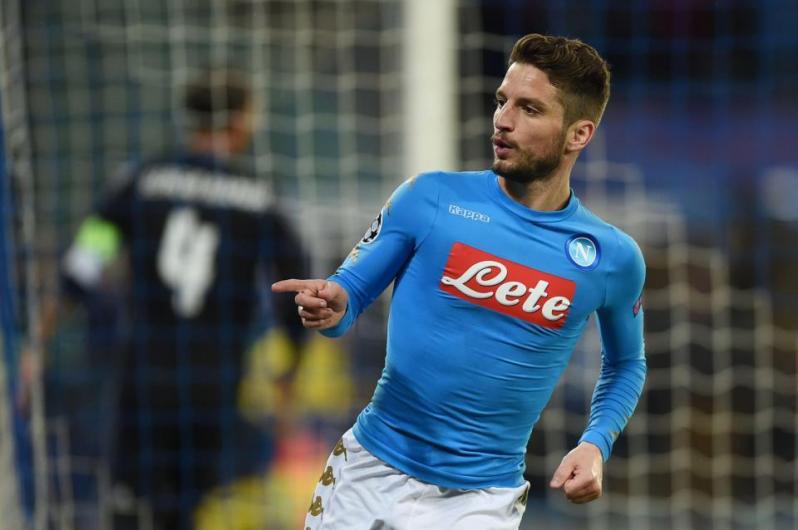
Napoli are brilliant, but Juve still pull through. Photo: @futbolarena | Twitter
This competition, this drive to dethrone Juventus has brought out some of the best performances and periods of success for many of the clubs in the rest of Italy. Would Roma have hit such heights ten years ago? Has Juventus’s success kindled a competitive spirit in the other teams, encouraging them to be better than they might otherwise have been?
Perhaps, but the issue is that no other club has been able to sustain this dominance. They have had to sell players, either abroad (Milan’s sale of Zlatan Ibrahimović and Thiago Silva) or to Juve themselves (Pjanic and Higuaín). Trying to compete with Juve - only to inevitably lose - is exhausting and unsustainable, it seems.
But, again, it is hard to lay this fault at Juve’s door – they should not be expected to willfully lose the league in order to help other clubs, even if this would be an ironic twist on the age-old match fixing scandals in Serie A.
So what can be done?
If the administrators of Italian football wished to act in order to break apart the Juventus hegemony, there are a few structural changes they could make.
For example, they might wish to introduce a playoff system, somewhat similar to MLS. After a certain point, the league becomes a straight knock out tournament, with the top four teams qualifying. Then, they will only have to beat Juve in one-off games in order to win the title. As such, squad depth and exhaustion would be less of a limiting factor.
But we already have a knock out competition in Italy. It’s called the Coppa Italia. Even if it does not quite have the same cache as the Scudetto itself, it does represent a chance for other teams to win a trophy. Juventus have won it three times in the last three years.
What’s more, restructuring the entire league in order to spite Juventus seems remarkably petty. It’s an unlikely solution, one which would dismantle much of the history of the league (one of its most marketable qualities.)
Perhaps, then, Serie A might wish to address the revenue distribution which keeps Juve on top. While the Serie A broadcast deal is shared relatively equally, continued participation in the Champions League and the riches it brings are a continual revenue boost to Juventus alone. Splitting this equally between all the European competitors (including the Europa League) from Italy might help diminish this clear advantage.
But it would be only a relatively minor fix compared to Juve’s commercial dealings and stadium revenue. Fixing this disparity would be even more difficult. Indeed, Napoli’s unique approach to commercial deals such as image rights has proved controversial in the past and the clubs themselves might be unwilling to sacrifice their autonomy over this, even if it did restrict Juventus’s ability to generate cash.
But budgeting does seem to be the key factor in much of Juventus’s success. The champions’ wage bill, in particular, is much larger than that of other clubs. This is what afford Juventus their squad depth and their star players, even compared to clubs such as Milan and Inter, who aren’t shy of paying the big bucks. A salary cap might help in this area, with a luxury tax slapped on to those clubs (i.e., Juve) who exceed a certain amount, which is then redistributed to the poorer teams.
However, it’s not as though Juve are spending beyond their means. Their accounts are very balanced, to the point where the club is practically self-sustaining. This isn’t true for most other teams, so why should Juventus be punished for their fiscal responsibility?
What’s more, a salary cap would prevent Juve from competing with other top European clubs for the best players, effectively dealing out a double punishment for simply being successful and prudent.
So, short of building new grounds for most of the teams in the country (impossible without the excuse of a World Cup or European Championship), the financial inequality is hard to address through regulations.
Finding a solution is difficult. There are plenty of structural issues in Italian football which are preventing other sides from competing with the best club in the country. However, there might be one sure-fire method which has always worked in the past: Do nothing.
Due to the very nature of football, periods of success and domination are cyclical. Teams rise and fall. Even if certain teams remain near the top, the kind of sustained success being enjoyed by Juventus right now is unsustainable. Eventually, they hit a stumbling block.
It might be an injury to a key player. It might be a few failed transfers. It might be a bad managerial appointment or a fallout among the board. It might be a sudden financial crisis or a problem with the owners’ other businesses. It could be anything (or a combination or things) which causes Juventus to stumble just enough that their streak is broken.
Hell, not many people saw Calciopoli coming. The aftermath dismantled the entire ruling class of Serie A. Afterwards, it looked like Inter were going to rule the league forever. As it happened, the greatest success of that side – winning the treble with Mourinho – proved to be their undoing. After Mourinho left, a series of bad managers, a foreign war and an aging squad all led to a slump which Inter are only now starting to turn around.
And the future doesn’t look all that shiny for Juve. Their squad right now is getting old. Buffon is retiring, the entire defense looks in need of a refresh and there’s clear holes in the midfield. The club’s star player, supposedly Paulo Dybala, has shown a propensity for going missing in the biggest games. Building a whole new squad might be difficult and could easily lead to a fallow period.
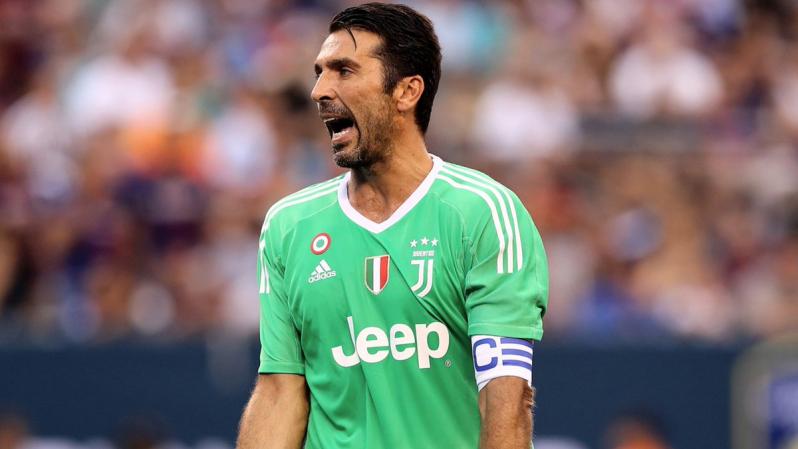
Juve will downgrade at keeper soon. Photo: @SMFutboI | Twitter
Juventus have made it their mission to lift the European Cup. But they’ve fallen short. They’ve come up against their own ceiling. As the competition’s perennial almost-rans, it’s become the one objective they prize above all others every single season. But constant losses to Spanish sides with bigger budgets, better players and a larger worldwide fanbase have provided a nice analogy to the problems faced by Serie A’s runner ups.
Just as Napoli and Roma are looking up at Juve and cursing their fortunes, Juve look up to Madrid and Barcelona and think similar thoughts.
So perhaps this is not a problem that is endemic to Italian football. Perhaps it is not a problem which needs to be solved, as such.
Even as Juventus are on the cusp of yet another title win, they still haven’t achieved what they’ve wanted. They’ve still come up short when it has mattered most. Now, as they celebrate, they will already be thinking about the difficult road ahead.
As Juventus begin to restructure, it falls on the other clubs in Italy to make sure that, as soon as there is even the slightest misstep, they are in a position to capitalize. Rather than looking to limit Juventus’s success, now is the perfect time to strike against their weaknesses. This is less likely the end of competition in Italian football and more likely just the beginning of a new era.


